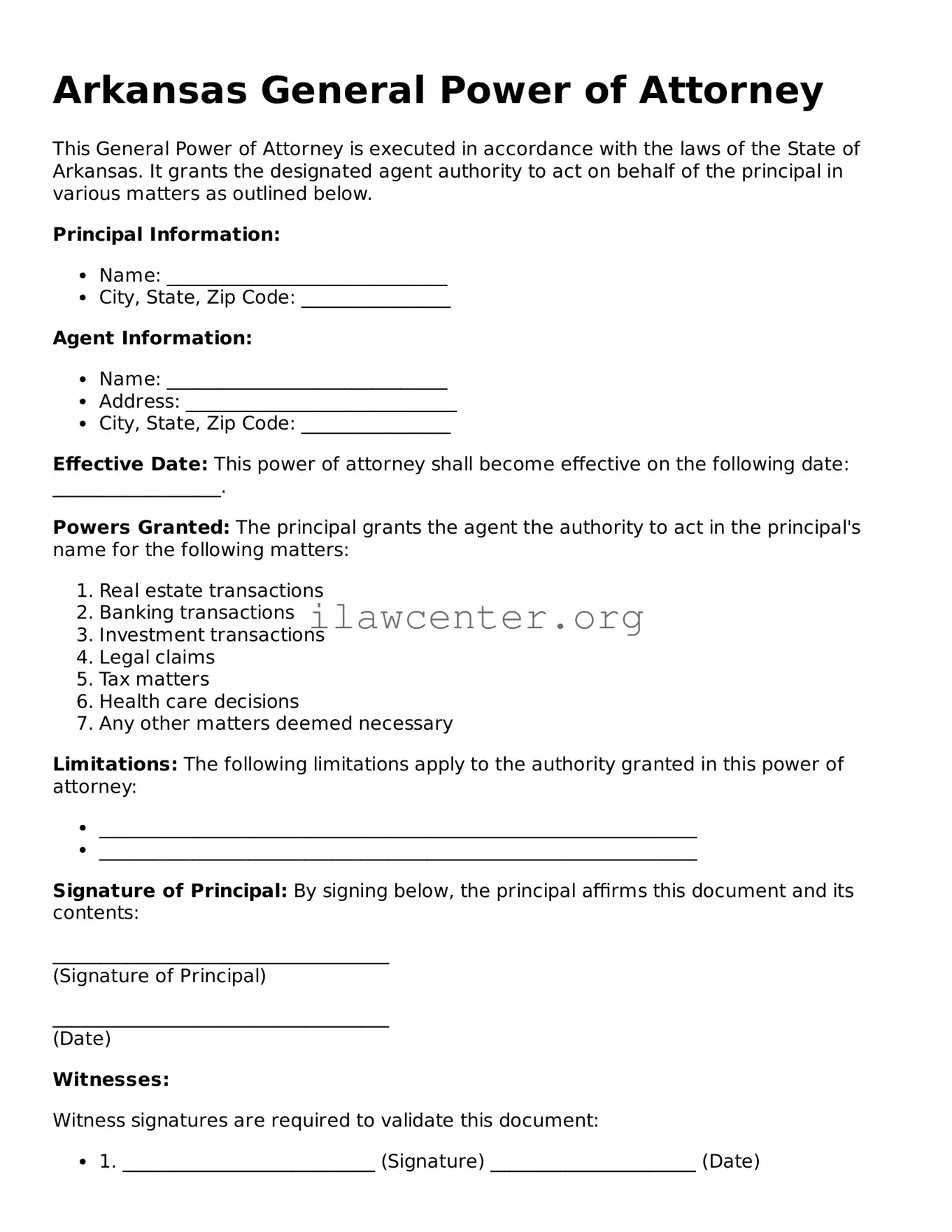What is a General Power of Attorney in Arkansas?
A General Power of Attorney in Arkansas is a legal document that allows an individual, known as the principal, to appoint another person, called the agent or attorney-in-fact, to make decisions on their behalf. This document grants broad financial and legal authority to the agent, enabling them to handle various matters such as banking, property transactions, and healthcare decisions if specified. It is essential to choose a trustworthy individual as your agent since they will have significant control over your affairs.
How does one create a General Power of Attorney in Arkansas?
To create a General Power of Attorney in Arkansas, the principal must be at least 18 years old and mentally competent. The form needs to be written, specifying the powers granted. While it is not mandatory to have the document notarized, doing so can enhance its legal standing and prevent potential disputes. After completing the form, the principal must sign it in the presence of a notary public to finalize the arrangement.
Are there any limitations to the powers given through a General Power of Attorney?
Yes, while a General Power of Attorney allows for extensive authority, there are limitations. The agent cannot make decisions that the principal is prohibited from making themselves. Additionally, certain responsibilities, such as making medical decisions, may require a specific type of Power of Attorney. It's crucial for the principal to specify any limitations within the document to restrict the agent's authority to certain areas, if desired.
Can a General Power of Attorney be revoked?
Yes, a General Power of Attorney can be revoked at any time by the principal, provided they are mentally competent. To do this, the principal should create a written revocation document and notify the agent and any third parties who may have relied on the original document. It is advisable to also destroy any copies of the original General Power of Attorney to prevent misuse, ensuring that all involved parties understand that the authority has been terminated.
What happens if the principal becomes incapacitated?
If the principal becomes incapacitated, a General Power of Attorney generally continues to be effective, provided it was drafted as a durable power of attorney. A durable power of attorney allows the agent to make decisions even if the principal can no longer do so. If it is not durable, the agent's authority ceases upon the principal's incapacity. Therefore, it’s important for the principal to specify this feature when creating the document if they wish for it to remain valid during periods of incapacity.
Can a General Power of Attorney be used in other states?
A General Power of Attorney created in Arkansas may be recognized in other states, but its acceptance depends on the specifics of state laws and the document's content. When traveling or moving out of state, it's advisable to check the local laws and, if necessary, create a new General Power of Attorney that adheres to those regulations. Consulting with a legal professional can provide clarity on how to proceed if you plan to use your Arkansas power of attorney in a different jurisdiction.
